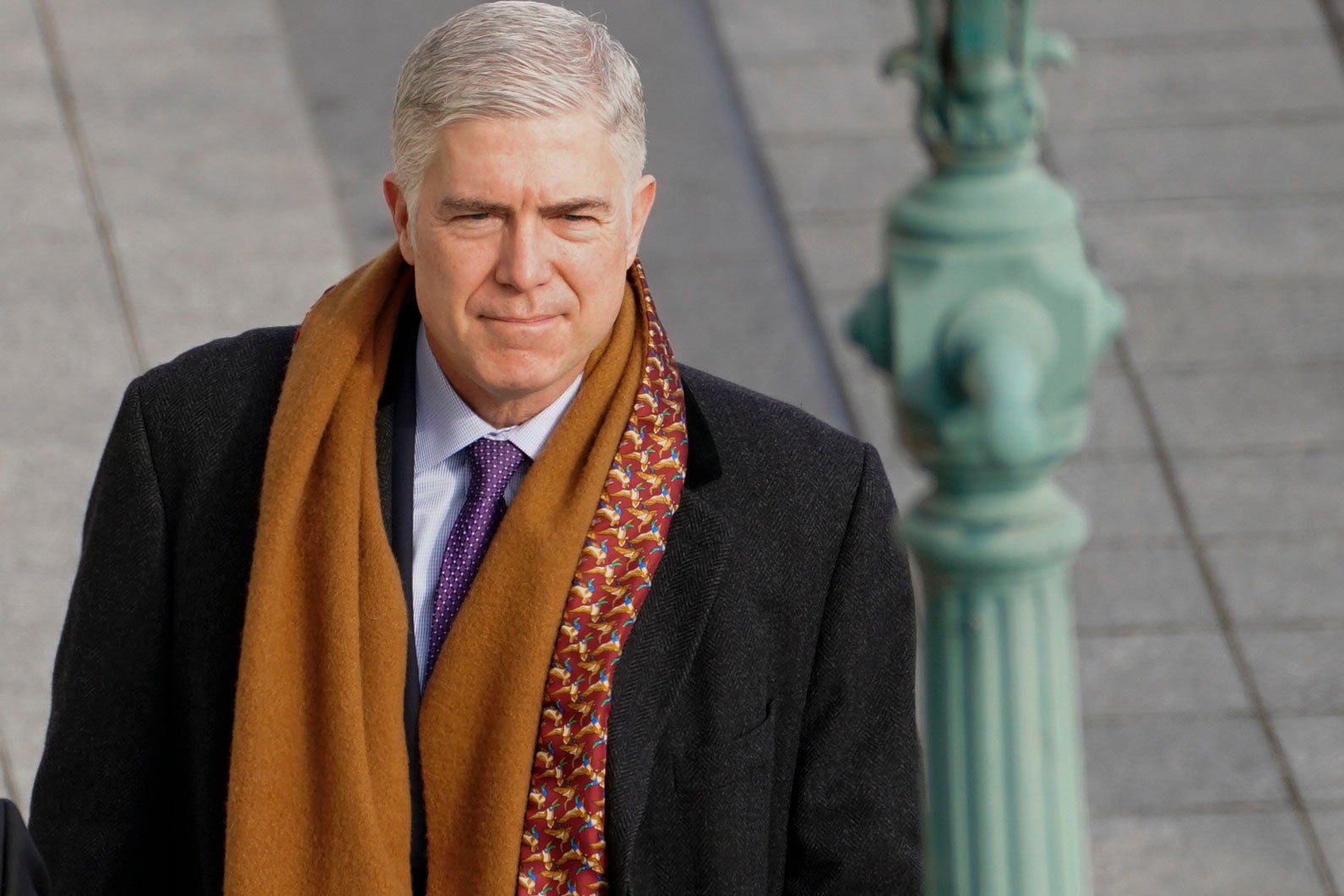Trump-appointed justice Neil Gorsuch praised for ‘eloquent’ statement on US colonialism in Puerto Rico case
The conservative justice called US colonial policy in the region ‘implausible and embarrassing’ in recent opinion

Justice Neil Gorsuch was no favorite of the left when he was nominated and confirmed to Justice Antonin Scalia’s Supreme Court seat five years ago, and, in his short time in the court, he has largely operated in lockstep with the conservative majority.
But in a concurring opinion in a recent Supreme Court ruling that Congress can continue to exclude residents of Puerto Rico from a federal safety net program, Mr Gorsuch wrote what Democracy Now!’s Juan González called “one of the clearest and most eloquent statements exposing US colonialism that’s ever been issued by a Supreme Court justice, at least in my lifetime.”
Last week, the Supreme Court voted 8-1 that Congress can continue to bar American citizens living in Puerto Rico from receiving Supplemental Security Income — direct payments to Americans living in poverty who are over the age of 65, blind, or disabled.
Jose Luis Vaello Madero, an American citizen born in Puerto Rico, challenged the law. Madero had been receiving SSI payments while living in New York, but when the Social Security Administration discovered that he had moved back to Puerto Rico several years ago, it cut off his payments and filed suit to recover $28,000.
Mr Madero sued, arguing that the exclusion of American citizens living in Puerto Rico violates the equal protection clause of the fourteenth amendment to the constitution. He won in two lower courts, but was defeated at the Supreme Court.
Justice Sonia Sotomayor, whose parents were born in Puerto Rico, dissented. Gorsuch voted with the majority, but, along with Justice Clarence Thomas, wrote a concurring opinion that clearly laid out his opposition to ongoing US colonialism in places like Puerto Rico.
Mr Gorsuch wrote that he wants to take aim at the legal rulings underpinning the differentiation in treatment between American citizens of American states and American citizens of territories like Puerto Rico by overturning what is known as the Insular Cases — a series of Supreme Court opinions in the early twentieth century holding that unincorporated, colonised American territories may be legally deprived of constitutional rights.
“It is past time to acknowledge the gravity of this error [the Insular Case rulings] and admit what we know to be true: The Insular Cases have no foundation in the Constitution and rest instead on racial stereotypes,” Mr Gorsuch wrote. “They deserve no place in our law.”
Mr Gorsuch wrote that the rulings reflected the theories of “social Darwinists” and rested on clearly faulty legal grounds.
“The flaws in the Insular Cases are as fundamental as they are shameful,” Gorsuch wrote. “Nothing in the Constitution speaks of ‘incorporated’ and ‘unincorporated’ Territories. Nothing in it extends to the latter only certain supposedly ‘fundamental’ constitutional guarantees.”
Mr Gorsuch voted with the majority, he wrote, because Mr Madero had not asked the Court to throw out the Insular Cases completely. He indicated that he would be happy to assist in that endeavor in the future.
Justice Brett Kavanaugh, who filed the majority opinion, wrote that because Puerto Rican residents are exempt from many federal income taxes, Congress has a “rational basis” for excluding them from the eligibility for safety net programs like SSI granted to other American citizens.
Ms Sotomayor, in her dissent, wrote that if the basis for inclusion in federal safety net programs is paying a certain amount of federal taxes, residents of sparsely populated states like Vermont, Montana and Alaska could also be excluded.
It’s not just Puerto Rico, either. The US’s colonial holdings today also include American Samoa, Guam, the Northern Mariana Islands, and the US Virgin Islands. In his opinion, Mr Gorsuch noted that the only island territory that currently has full constitutional rights is Palmyra Atoll, an uninhibited parcel of land in the Pacific Ocean. He called the situation “embarrassing.”
Puerto Rico’s status is being debated this week in Congress, where advocates from the island and allies are pushing to pass the Puerto Rico Self-Determination Act — which would allow residents of the island to vote freely on whether to become independent, become an American state, or take free association status with the US.
But the bill faces an uphill fight, while a majority of the court’s liberals and originalists have not indicated any desire to overturn the Insular Cases. Nevertheless, Mr Gorsuch’s words may serve as a rallying cry in the years to come.
“The time has come to recognise that the Insular Cases rest on a rotten foundation,” Mr Gorsuch wrote. “And I hope the day comes soon when the Court squarely overrules them. We should follow Justice Harlan and settle this question right. Our fellow Americans in Puerto Rico deserve no less.”
Subscribe to Independent Premium to bookmark this article
Want to bookmark your favourite articles and stories to read or reference later? Start your Independent Premium subscription today.

Join our commenting forum
Join thought-provoking conversations, follow other Independent readers and see their replies